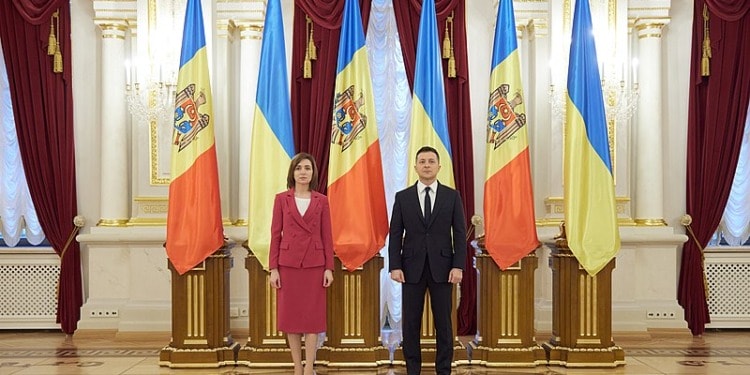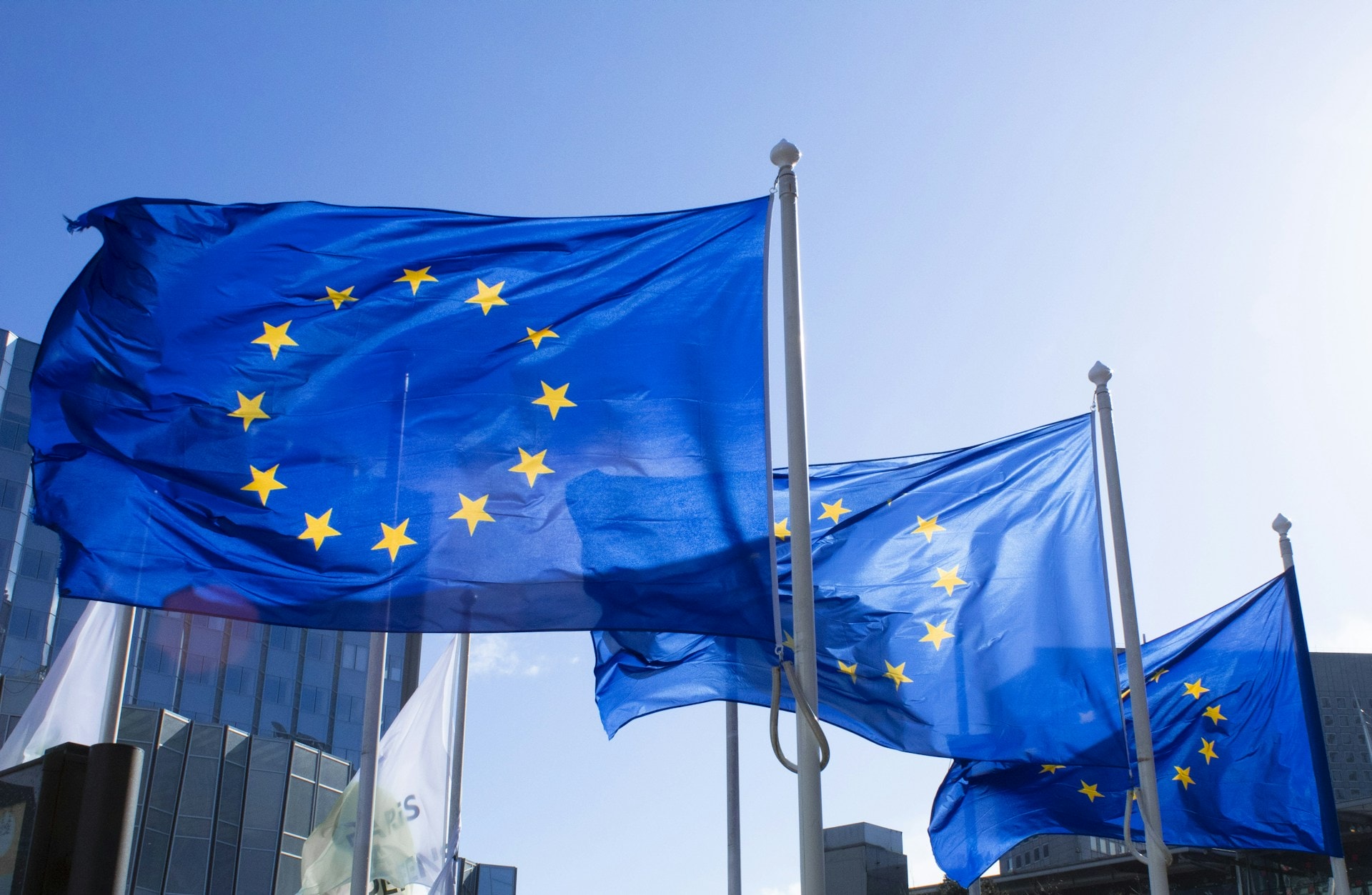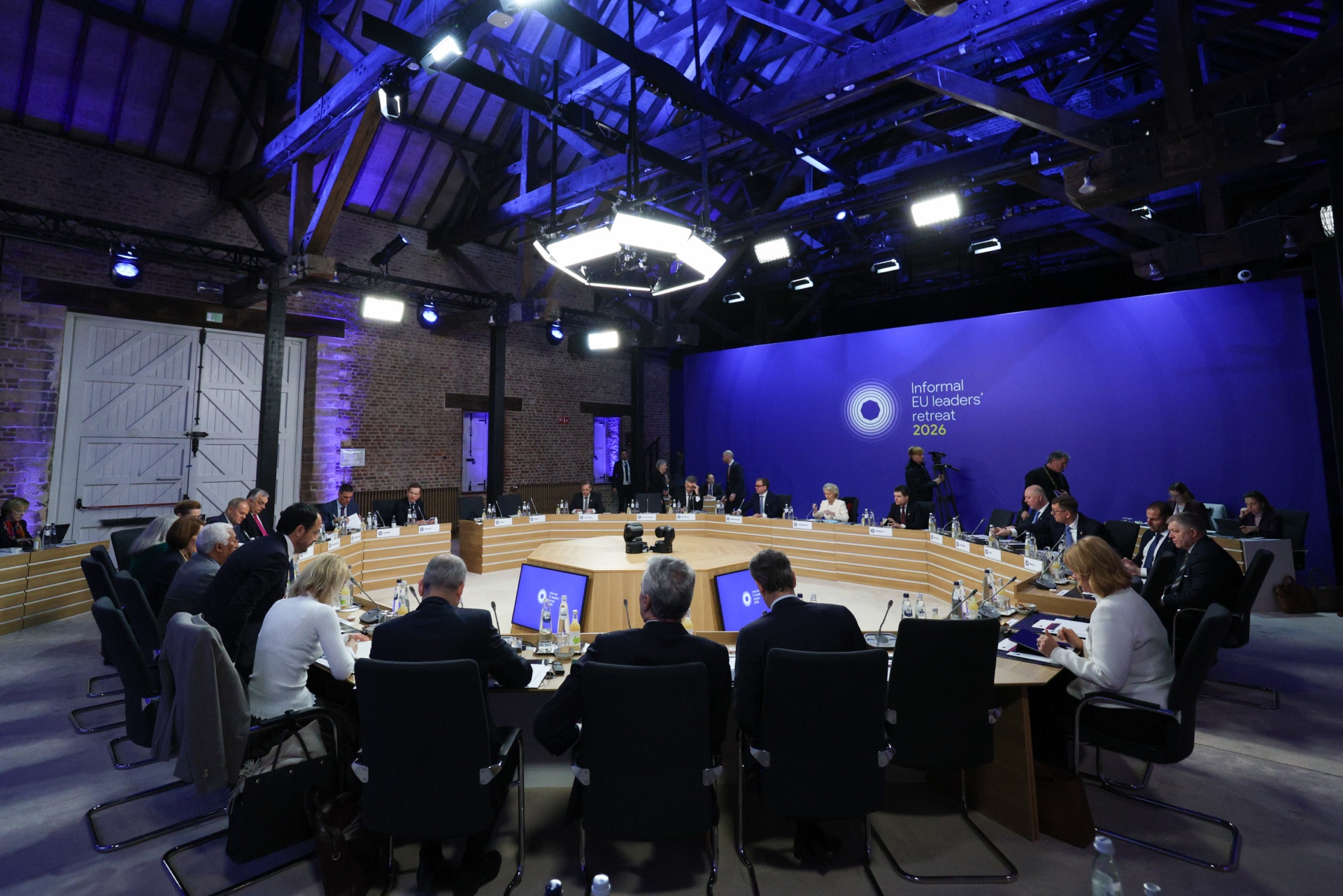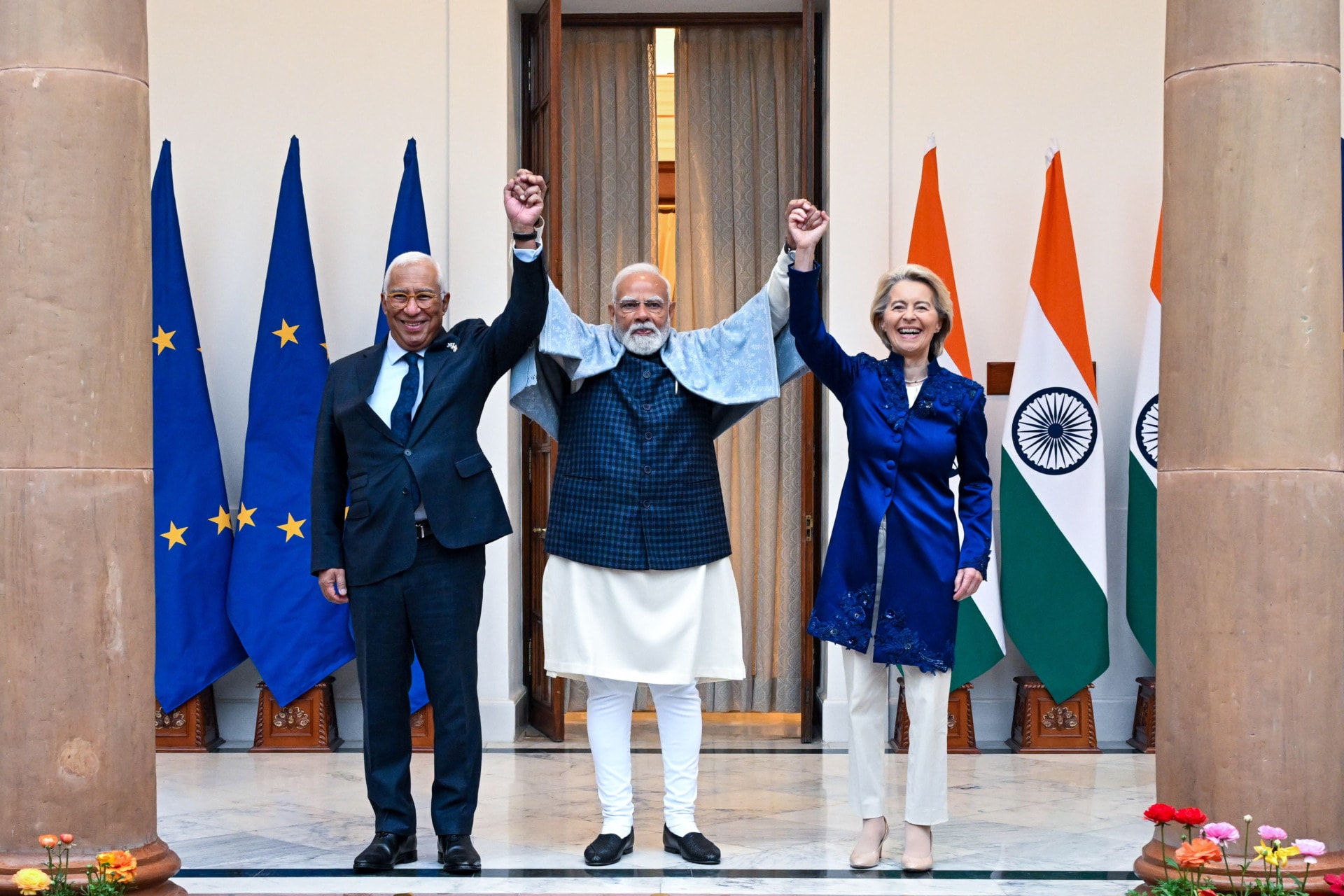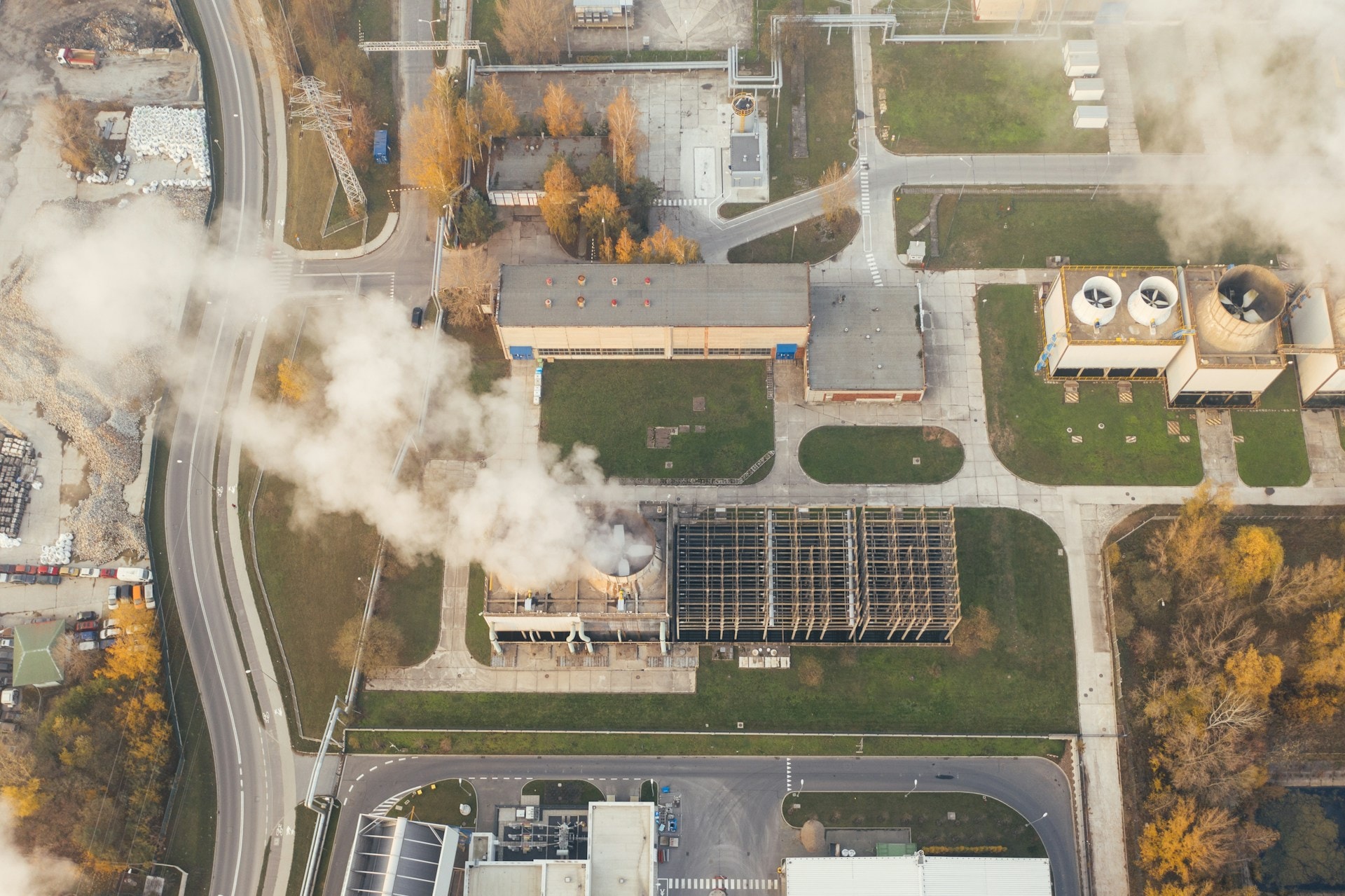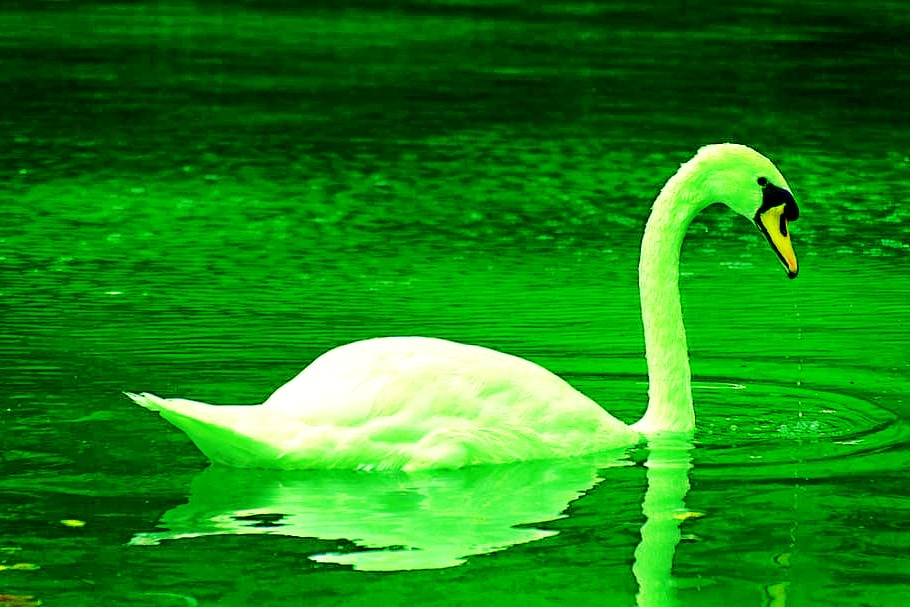When the European Commission recommended Moldova for EU membership in June 2022 it said: “Provided the country’s leaders stay on course, we believe that the country has the potential to live up to the requirements.” Since then, Russia has been doing everything short of invading to shift the country’s course.
Last month Moldova’s President Maia Sandu accused Russia of plotting to overthrow the country’s pro-European Union (EU) government.
Ukrainian President Volodymyr Zelenskiy originally told EU leaders that Ukraine had intercepted a plan from Russian intelligence. A week later it was confirmed by the Moldovan government when the country’s president stated Russia was plotting to bring down her government with the aid of foreign saboteurs from Russia, Serbia, Belarus and Montenegro.
She said their aim would be to attack government buildings, seize hostages and then spark protests to replace the government with one in line with Russia.
On Sunday, Moldovan police announced they had arrested members of a Russian back plot who had been trained to cause mass arrest at a protest in Moldova’s capital of Chisinau. More people were arrested at the protest who exhibited questionable behaviour or carried prohibited items including knives.
Moldovan police announced the disclosure of a Russian intelligence network
Seven people have been detained during an operation to uncover a pro-Russian network created to destabilize the country, police chief Viorel Cernauteanu said. According to him the suspects arrived in… pic.twitter.com/eV29QlUntc
— NEXTA (@nexta_tv) March 12, 2023
The arrests came shortly after White House National Security Council spokesman John Kirby said that actors, some connected with Russian intelligence, are seeking to stage and use protests in Moldova as a basis to stage an insurrection against Moldova’s government.
“As Moldova continues to integrate with Europe, we believe Russia is pursuing options to weaken the Moldovan government probably with the eventual goal of seeing a more Russian-friendly administration in the capital,” Kirby said.
Writing in The Conversation Professor of international security at the University of Birmingham Stefan Wolf said that the loss of influence felt by Russia due to the invasion of Ukraine has meant it’s “likely to raise the stakes and try to escalate tensions and confrontation across the region.” By its actions in Moldova Russia “maintains disproportionate malign influence” in the country.
According to Wolf the goal of Russia’s actions has been to destabilise Moldova and keep the country within their sphere of influence.
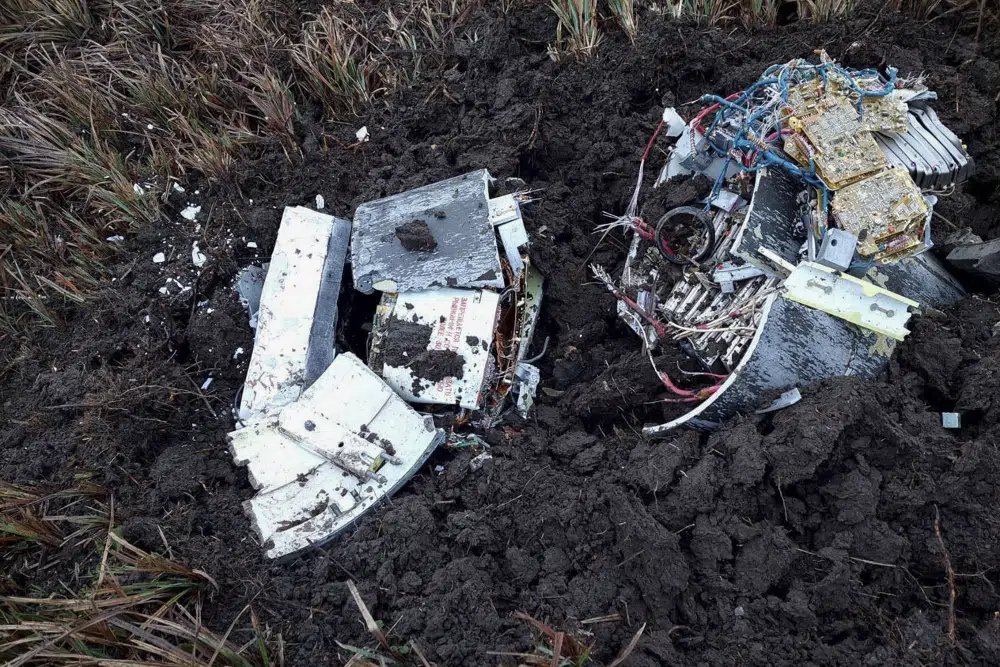
Moldova has seen months of protests organised by the party of the fugitive pro-Russian oligarch Ilan Shor, who fled to Israel after being convicted of being involved in the theft of $1 billion dollars from Moldovan banks. Shor has been one of Russia’s main partners in the country and has been accused of paying protesters to turn up.
Protesters are opposed to the country’s pro-EU government, which came to power with a clear majority in 2020 replacing a more pro-Russian government, and have occurred since inflation and energy prices soared last year due to Russian action. The Russian state energy giant Gazprom cut energy flows to Moldova by a third in October and warned it could stop supplies entirely at any time.
Moldova has also faced bomb threats, an extensive misinformation campaign, and hundreds of suspicious individuals trying to enter the country, and Russian missiles flying through its airspace.
A man who might have been part of Wagner was denied entry to Moldova today, according to the border police. He is one of 183 foreign citizens banned from Moldova over the past week, amid local concerns for Russian-orchestrated destabilisations pic.twitter.com/pCvdbMkWMS
— Paula Erizanu (@paulaerizanu) March 12, 2023
Moldova’s Russian headache is made more complex by Transnistria. A sliver of territory sandwiched between the left bank of the Dniester River and Ukraine, it unilaterally declared independence from Moldova in 1990 and fought a short border war to stay independent.
A truce was signed in 1992 but no country — not even Russia — recognises it as an independent state. It’s self-governing and is de facto independent from Moldova thanks to the backing of Russia and the 1,500 Russian soldiers in the breakaway region.
Related Articles: Ukraine And Moldova Win Initial EU Recommendation for Membership | Attacks in Transnistria Spark Tensions and Increase Risk of Escalation
In April last year a series of attacks by unknown individuals in Transnistria sparked fears the breakaway region would be drawn into the Ukrainian war. A claim by Russia in February this year without any evidence that Ukraine was going to invade Transnistria was dismissed by the Moldovan government.
In their initial invasion of Ukraine, it appeared Russia had planned to capture Ukrainian territory up to the border with Transnistria.
While military setbacks in Ukraine and decreasing Russian influence in countries traditionally in its sphere of influence have created a sense of a weakened Russia, the events in Moldova suggest that Russia is keeping up — or even increasing — its attempts to maintain its influence abroad.
Speaking on recent events Moldovan Defence Minister Anatolie Nosatii said that while his country does not currently face “imminent military danger,” it is subject to “hybrid warfare generated by Russia” in a bid to “overthrow state power.”
Editor’s Note: The opinions expressed here by the authors are their own, not those of Impakter.com — In the Featured Photo: Official visit of Moldovan President Maia Sandu to Ukraine in 2021. Featured Photo Credit: Wikimedia Commons.


